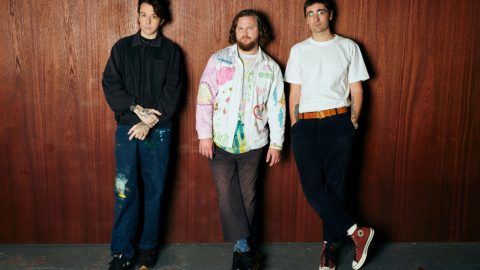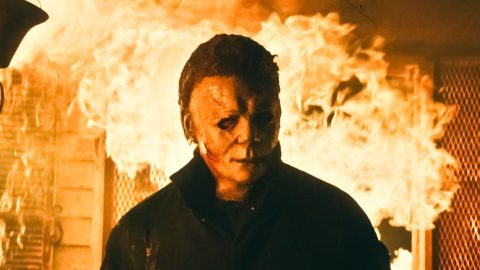
Eighty years ago, Timely Comics published the first adventures of Black Widow – then a cloaked mystic who is murdered and becomes “Satan’s ambassador” on Earth. Doomed to stalk battlefields, murdering Nazis so that her master may gorge on their corrupt souls, 1940s Widow bears little resemblance to Timely successor Marvel‘s box office-smashing super-spy – now the subject of her own Avengers spin-off.
Less Third Reich bloodbath, more Cold War heist thriller, Black Widow opens on idyllic Ohio, just before the collapse of the Soviet Union. Natasha Romanoff is a young child, snatched from her biological parents by the KGB and groomed into a lethal, pint-sized killing machine. But when the family of undercover operatives she lives with is found out, they escape back to Russia and the wholesome domestic bliss she has enjoyed evaporates.
Fast-forward 20 years and a grown-up Romanoff is now the fully-fledged (and fully defected) Black Widow: defender of the planet and drinking buddies with Iron Man (genius, billionaire, playboy, philanthropist), age-defying Captain America and Norse god of thunder Thor. The Avengers are on a break (you know, the one that follows Captain America: Civil War), so it only takes the unexpected visit of an old enemy to kickstart a quickfire tour of eastern Europe – and to get Natasha digging into her murky past.

Quite murky it is too. Although no dead fascists appear on her resumé, there is a bit of blowing up infants and betraying loved ones to wade through instead. Of the MCU’s heroic lineup, Black Widow has always felt the most mysterious – the corners of her character left unshaded while Tony Stark and Chris Rogers whizzed through multiple movies’ worth of colouring in. Unlike her male counterparts, Widow’s solo debut isn’t an origin story. It’s far more complex and interesting.
After the initial (and only) flashback, which doesn’t actually detail how Black Widow became Black Widow, the film jumps into an extended title sequence complete with doomy ‘Smells Like Teen Spirit’ cover and floaty James Bond-esque visuals. It’s rare for a Marvel movie to frontload its credits – could this hint at a closer union between the cinematic universe and new Disney+ shows, where it is commonplace? It’s the perfect tone-setter, anyhow, because although there’s plenty of smash-and-grab action setpieces paired with eye-popping CGI visuals, the franchise’s first film in two years tries something pretty different to its predecessors.
Blessed with a cast of comic book newbies – all of whom employ dodgy Russian accents – Black Widow serves as a palate cleanser ahead of Marvel’s imminent Phase Four. Slated movies like Eternals and Shang-Chi and the Legend of the Ten Rings are going to introduce a lot of new faces – and Florence Pugh, David Harbour and Rachel Weisz prove new blood doesn’t have to spoil the formula. Pugh, in particular, steals more than a few scenes from Scarlett Johansson as Natasha’s snarky younger sibling. While Harbour’s bearded, badmouthed supersoldier (and makeshift dad) nails punchline after punchline, often at the same time as actually being punched. Their fake (but very believable) family dynamic offers something different to Ant-Man or Black Panther – and possibly more in keeping with Vin Diesel’s familia-obsessed Fast and Furious movies.
By the apocalyptic and slightly predictable ending – come on, another quasi-spaceship assault? – Johansson’s swansong has cycled through futuristic sci-fi, buddy comedy, escape adventure and teary drama. Granted it’s not beating up Nazis for Beelzebub, but it’s still a hell of a lot of fun.
Details
- Director: Cate Shortland
- Starring: Scarlett Johansson, Florence Pugh, David Harbour, Rachel Weisz
- Release date: July 7 (in cinemas), July 9 (Disney+ with Premier Access)
The post ‘Black Widow’ review: Marvel’s cinematic web expands to a new generation appeared first on NME.






